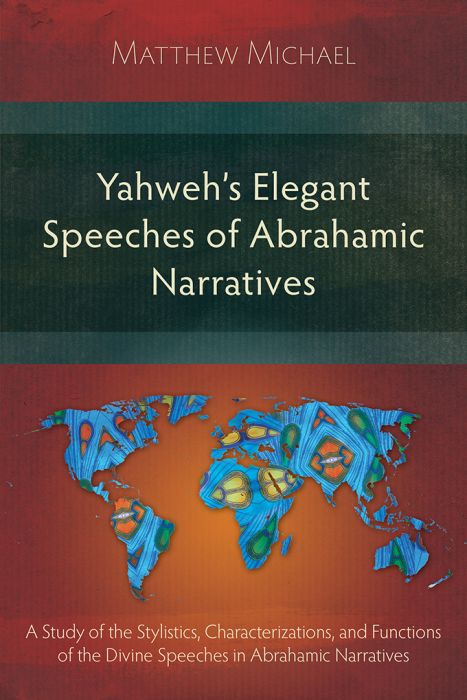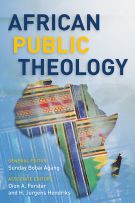| ISBN: | 9781783689750 |
|---|---|
| Imprint: | Langham Academic |
| Format: | Paperback |
| Dimensions (mm): | 229 x 152 x 18 |
| Publication Date: | 14/05/2014 |
| Pages: | 332 |
| Series: | Studies in Old Testament |
| Language: | English |

Yahweh's Elegant Speeches of the Abrahamic Narratives
A Study of the Stylistics, Characterizations, and Functions of the Divine Speeches in Abrahamic Narratives
This work is a study in the attribution, aesthetics and representations of Yahweh’s speeches in the Hebrew Bible. It describes the literary elegance and beauty of the speeches of Yahweh in the Abrahamic narratives. Employing a synchronic reading of the Abrahamic cycle, it underscores the presence of various literary devices in the divine speeches (12:1-9, 13:1-18, 15:1-21, 17:1-27, 18:1-33, and 22: 1-19). Specifically, it engages the high concentration, literary effects and use of metaphors/metaphoric language, similes, alliterations, wordplays, euphemisms, hyperboles, repetitions, allusions and other distinctive literary features in the speeches of Yahweh which are deliberately denied, and glaringly absent in the speeches of the other main characters of the Abrahamic narratives (e.g. Abraham, Sarah, and Hagar). Similarly, it demonstrates the importance of these elevated speeches in the narrative world of Abrahamic epic. Most importantly, it also highlights the ideological significance of these decorated speeches of Yahweh to the original audience of the narrator who presumably identified with their excessive optimism and rhetoric. Consequently, this book is a pioneering work in the contemporary study of stylistics, characterizations and functions of attributed speeches in the Hebrew narratives.
Endorsements
I found in this work a thoughtful and thought-provoking analysis of stylistic features of the (reported) divine speeches in the narratives about Abraham (and YHWH) in the book of Genesis and their significance for both the communication of central ideological positions and esthetic pleasure to its intended readers.
Professor Ehud Ben Zvi
Department of History and Classics,
University of Alberta
Dr Michael’s book is a well-researched and well-written contribution to the current focus on stylistics in the literature of the Old Testament. Still, the book avoids a mere ‘art for art’s sake’; the stylistic devices are seen as fulfilling certain semantic functions that express a message to the world of the author as well as to readers of today. As such, the question of contemporary relevance – which is a major focus of Dr Michael’s immediate academic context, that of African Old Testament scholarship – is not absent, rather approached from a new and fascinating perspective.
Professor Knut Holter
Prorector for Research
MHS Misjonshøgskolen






